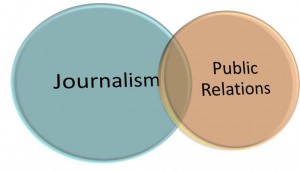Bournemouth locals advised not to worry about high crime rates
My attempt at news writing after being designated Central Bournemouth as my patch…
 Bournemouth residents are being advised not to worry about high crime rates in the town’s clubbing district by the Council’s night-time initiative.
Bournemouth residents are being advised not to worry about high crime rates in the town’s clubbing district by the Council’s night-time initiative.
A new website set up by the Home Office shows that Bournemouth is home to some of the highest crime figures in the country. Fir Vale Road and Lansdowne Crescent saw 72 and 68 crimes respectively in December 2010.
Jon Shipp, Night Time Economy Coordinator for Bournemouth Quality Nights (BQN) Initiative, says that crime has decreased in the past two months. He said: “Bournemouth has a massive amount of visitors compared to other towns so crime rates are going to be higher. It’s important to keep this in perspective.”
BQN Initiative, part of Bournemouth’s Townwatch, is responsible for improving night-time safety. The initiative ensures police and chaplains patrol the streets at night and organise the annual Best Bar None audit.
Best Bar None will run for the fifth year in August awarding pubs and clubs points for reduction of crime and disorder, health and safety and licensing regulation.
Shipp added: “The majority of premises in Bournemouth are very well managed as you can see from the 24 accredited clubs in our Best Bar None initiative but if clubs do not take their responsibilities seriously then vigorous action must be taken.”
Upmarket clubs The Studio and Priva lost their licence this month after complaints of assault, drunkenness and drug abuse.
Rob Knowles from Dorset’s Door Supervisor Training Organisation says strict regulations are also being introduced to club bouncers. He said: “It’s important that bouncers are trained to intervene safely so that they don’t react violently to someone and make a situation worse.”
Bournemouth University student, Hannah Bedwell, often visits the town’s clubs but has never been a victim of crime. She said: “I always make sure I stay in a group but as it’s a busy area I know there’re always people around if I need help.”
Last year Bournemouth was awarded The Purple Flag which recognises excellence in the management of town centres at night. Bournemouth was praised for providing a safe, clean and pleasant night-time experience.
Photo: Bournemouth Echo
A beginners guide to reporting
 In the second week of my journalism unit we were well and truly thrown into the deep end. After just a week of journalism theory we were to become Bournemouth University’s official reporters as we investigated how students really feel about semesterisation. It’s true what they say though, the best way to learn anything is to just have a go… so that’s exactly what we did.
In the second week of my journalism unit we were well and truly thrown into the deep end. After just a week of journalism theory we were to become Bournemouth University’s official reporters as we investigated how students really feel about semesterisation. It’s true what they say though, the best way to learn anything is to just have a go… so that’s exactly what we did.
Here is my beginners guide to reporting:
- Firstly, be prepared. Research the facts first, know the subject inside out and read any related articles first. Having a solid understanding and knowledge of Bournemouth University’s semesterisation programme was key.
- Make sure you know what you want to ask interviewees and choose people who will add credibility to your story. I prepared a selection of questions to ask students and lecturers at the university. However, these were only used as guidelines as it was important to respond to the answers given and to find out more about particularly interesting points. You don’t want to miss a crucial angle by skipping to the next question.
- Finding contacts can be difficult. Students were not too difficult to find as I was already at University so I decided to chat to students in the SU bar. Speaking to lecturers was a little bit harder as they work to a busy schedule. To overcome this I researched specific lecturer’s office hours and dropped by to see if they were available to chat. Speaking to those involved with the student union was also useful and they were particularly keen to share their views.
- When reporting make use of all the mediums around you for reaching potential sources- Twitter and Facebook can be great for this.
- Once you’ve found a wide range of sources, getting each of them to speak to you can be even harder. Always be polite and introduce yourself, the subject you would like to discuss and explain why you are interested in their views.
- Remember to take all key details that may be needed in the story. For this example, I took the interviewee’s name, age, degree and year. Also, if you are unsure of a spelling then ask. It is always best to double check all details are correct at this stage than to get it wrong in the report. If a source asks to remain anonymous then you must respect their wishes.
- If possible take a contact detail so that if you have any queries when writing the story you can get back in touch.
- Remain organised. A good reporter should have spoken to many sources before they begin writing so it is important to keep all your notes in order. I also find it is useful to keep track of all the people I have contacted and ticked off those who have responded. It does not look professional to pester those who have already declared they are unwilling or unable to comment on a topic.
- Once you feel you have enough information full of credible sources and a clear, newsworthy angle you are ready to write.
Good luck!!
Photo: google images
PR v Journalism or PR = Journalism?
 “Writing has always been my passion. It’s a way to express myself, my feelings and opinions or I can fully emerge myself in another world through creative writing. When I write it feels like a release of emotions and an escape from everyday life.”
“Writing has always been my passion. It’s a way to express myself, my feelings and opinions or I can fully emerge myself in another world through creative writing. When I write it feels like a release of emotions and an escape from everyday life.”
This was the answer I prepared when my journalism lecturer asked in our first seminar this year why we had chosen his unit. It was an honest answer but I dreaded being chosen to answer. This was mainly due to the fact that I didn’t want to announce that I actually intended to follow a career on the other side – in PR.
So why did I choose this unit?
Ever since I was a small child I would write. In my pre-school years I would copy out children’s books and then as I became slightly older I would start to write my own little imaginative stories. I can vividly remember the sense of pride and satisfaction I felt as my parents read and praised my work. But it wasn’t just creative writing I attempted. In my final year of primary school I wrote and edited my very own magazine – my first taste of ‘journalism’. And to cut a long story short, the pattern continued throughout school and sixth form as I excelled in both English and Media Studies.
As you can see through this blog and my work portfolio, I still enjoy writing and I believe that continuing and furthering your writing skills stands you in good stead for whichever career path you choose. For instance, PRO’s are often writing press releases and features to send to journalists or using social media platforms, such as blogs, to publicise their company.
As well as in writing, I have a great interest in the media and its powerful influence on our lives. Being part of that in some way fills me with excitement. Whichever profession in the media you choose surely it makes sense to understand how they all work together? The journalism unit is vital in my final year of my degree not only to develop my writing skills but to compliment my other units: public relations, advertising and publishing. I would recommend Bournemouth University’s Communication and Media degree to anyone who has a general love for the media. No other degree would give you such a well-rounded understanding of the integrated professions and how they relate to each other.
If I am to employ successful PR practice in the future I need to understand the role of the journalist in order to work beside them effectively. I need to be aware of their pressures and demands, instead of focussing purely on my own, to form a good working relationship with them. At the same time PR involves writing clear and concise press releases with newsworthy angles which will help save a busy journalist time. In my opinion, having a solid understanding of the role of a journalist is key and vice versa.
Check out the clip below which demonstrates the importance of PROs and journalists understanding each other’s job role:
Have your say: Should loans and grants be assessed by parental income?
 As a student, a subject close to my heart is finance…I need more!
As a student, a subject close to my heart is finance…I need more!
So, with a possible general election looming I thought I’d discover whether we are happy with the current system or whether we want change (as all the campaigns seem to be asking us this question)?
I know for one I do not understand why our loan and grants are based on our parents’ income now we are adults and have left home. I don’t want to ask my parents for money now I have eventually gained independence so why does it matter what they earn?! Why is it not based on our income as most of us have part-time jobs to fund our way anyway? But that is my opinion and you are entitled to yours.
Enter the poll and leave possible suggestions on alternative ways of how us ‘poor’ students could be assessed. Or if you are happy, let me know and I will stop ranting…possibly!
Should loans and grants be assessed by parental income??
(polls)
Brown, Cameron or Clegg- the almost impossible choice is yours!
Election day is upon us at last…and I am still undecided.
If I do vote Lib Dem then it’s looking likely that a hung parliament is our future – although, maybe that wouldn’t actually be too bad as it is now being coined a negotiating parliament! But hang on… politicians can negotiate?
I must say, I have been really impressed with Cameron’s 24 hour campaign marathon proving he has the stamina and motivation to lead our country. Maybe he does deserve my vote after-all?
So… Labour is a ‘no way!’ for me but do I choose Nick Clegg who I actually really like and risk a hung parliament or my nightmare and Labour win over seats or do I stick to my loyalties and pray that Conservative can make a difference?
Well I now have under 9 hours to decide Aarrrggh!
Take part in the poll and comment below to have your say!
May 6, 2010 Posted by Caitlin | Poll | comment, politics, Poll, students | 7 Comments